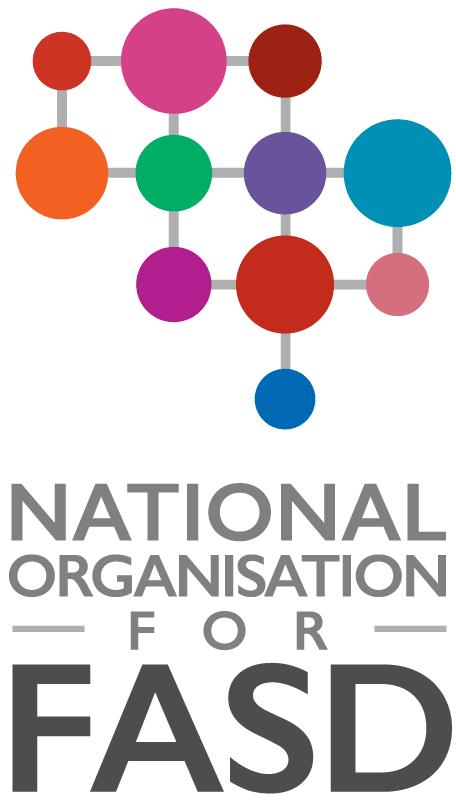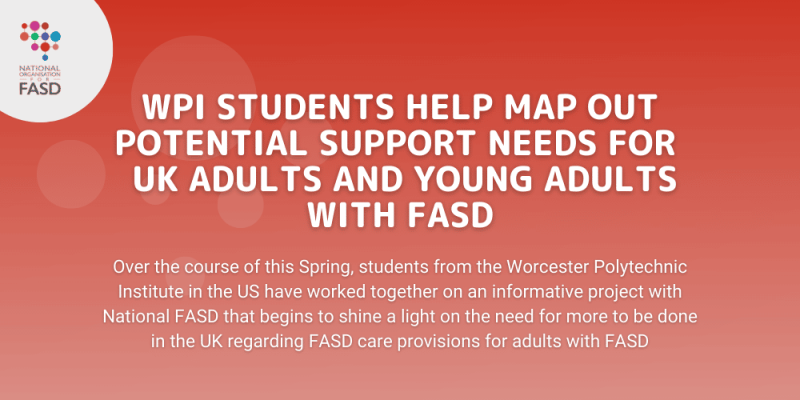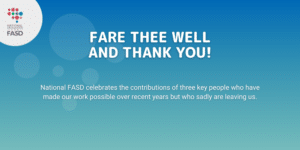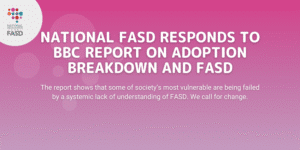Over the course of this Spring, Caitlin Bonavita, Grace Casey, and Josie Kim, 3rd year science and engineering university students from the Worcester Polytechnic Institute in the US, have worked together on an informative project with National FASD that begins to shine a light on the need for more to be done in the UK regarding FASD care provisions for adults with FASD.
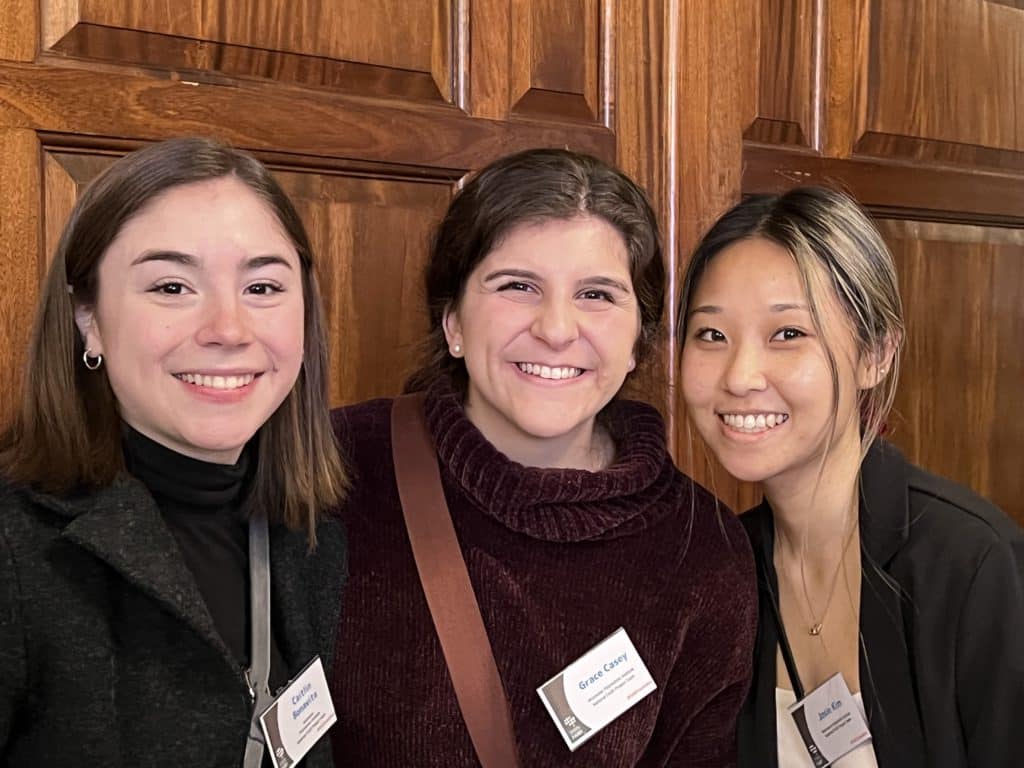
Even before having travelled to London for their project, the team began working with Sandy (our Chief Executive) and Jo (our Director of Innovation) to define exactly what they wanted to research. Although the UK has a relatively high FASD prevalence rate, and high rates of drinking during pregnancy, there is very little support for adults and young adults with FASD.
With this in mind, the WPI team set themselves 4 project objectives:
- Assess the state of knowledge and scientific consensus regarding the lifelong impacts of FASD
- Identify the policies, practices, and guidelines proposed and implemented in the UK that address FASD
- Identify the policies, practices, and guidelines that address FASD in adulthood and in general in other countries
- Create deliverables that summarize the current research, policies, and practices
The team then presented their findings and deliverables to a small international Zoom meeting of FASD experts, academics, and people with lived experience of FASD to help National FASD in its preliminary planning phase of the new “Rising 18” project.
The research
Their research began with a review of studies and other documents that dealt with the lifelong impacts of FASD, and picked 3 areas in particular to focus their attention:
- How does FASD impact housing/daily living?
- How does FASD impact employment/education?
- How does FASD impact the transition to independence/adulthood?
Alongside a literature review, they interviewed four adults with FASD in the UK, to gather their lived experiences of everyday challenges and how they thought adults with FASD could be better supported. To reinforce this, they also interviewed an FASD researcher/advocate and parent to gather their experiences.
Highlights
Through their efforts, the team identified that the US and Canada in particular are ahead of the UK in their FASD service provisions for adults with FASD. However, in all cases, there was still much room for improvement.
Their findings were divided into a series of overarching brackets, including diagnoses, mentoring, housing, criminal justice system, education/individualised education programs, legislation and policy proposals, and, finally, initial thoughts on ways the UK could move forward.
Some areas of best practice:
- There are some mentor programs in Canada for those with FASD who are transitioning through adulthood
- The United States and Canada have some interesting options for permanent housing for adults with FASD
- Canada has some examples of information for police officers as well as justice system professionals in how to approach a situation or investigation more effectively with an individual with FASD
- The United States has some encouraging legislative efforts regarding FASD that can improve the lives of adults with FASD.
We’d like to thank the team from WPI for their amazing work in helping National FASD to establish a baseline for our planned projects to focus on transitions to adulthood for those with FASD.
We asked them for their reflections on the project.
“For me personally, the part of the project I really enjoyed was our interview portion of talking to those who work with FASD (whether they were advocates, researchers, family members, etc.). It was really inspiring to hear so many stories of dedication and passion towards getting FASD the recognition and support it deserves,” said Grace.
Josie commented: “Working on this project was not only rewarding, but eye opening. Being able to work on a project that will hopefully help improve the lives of adults with FASD is something that I will always be appreciative of. The work that Sandy and Jo do for FASD is inspiring and I’m so happy that I was able to be a part of it!”
Chief Executive Sandy Butcher said, “Caitlin, Grace and Josie have done a great deal of work in a short time. Their research, insights and interviews have helped National FASD to better understand examples of best practice from other countries in supporting adults with FASD and those transitioning into adulthood. It’s wonderful to work with the interdisciplinary WPI teams – we all learn in the process and our work is stronger as a result. We can’t thank them enough for all their hard work and good will.”
You can find the team’s full packet of deliverables including their final booklet, resource guide, and presentation by hitting the button below!
This is the third team from WPI’s London Project Centre to work with National FASD. For information on the earlier two teams, you can find out more here.
